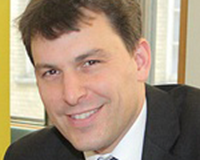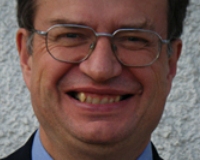MP backs report’s call for greater religious literacy
by - 5th January 2015
 GREATER religious literacy is needed and religion must be taken more seriously, John Glen MP said this week.
GREATER religious literacy is needed and religion must be taken more seriously, John Glen MP said this week.
The MP, who was speaking ahead of the launch on 6 January of the Religion, Security and Global Uncertainties Report in Portcullis House, Westminster, also warned that the public discourse around religion and security is ‘prone to quick summaries and unhelpful simplifications.’
The chair of the All Party Parliamentary Group (APPG) on Global Uncertainties praised the report - a product of 18 months of study that has concluded ‘religious literacy and a wider vocabulary are needed by all’ and also warns of adopting a simple ‘cause and effect’ approach ‘whereby "dangerous" ideas lead people to violent action’.
The former BBC Defence and now Religious Affairs Correspondent Caroline Wyatt will moderate tomorrow’s Open University event. Panelists will include historian Tom Holland, Dr Marat Shterin of King’s College, and Foreign Correspondent of the Pittsburgh Tribune Betsy Hiel.

The report launch comes shortly after the BBC’s Head of Religion, Aaqil Ahmed complained of a ‘lack of religious literacy’ in modern society.
The event, which is billed as a ‘National Consultation’, is co-hosted by Lapido Media. Founding CEO Dr Jenny Taylor said: ‘The invisibilisation of religious beliefs, especially among minority groups, has proven catastrophic in some cases, increasing insecurity in general and diminishing the potential for problem-solving’.
Significant
Glen said the ‘significant event’ will ‘create dialogue and knowledge exchange between academics, faith communities and politicians.’
‘It’s really important that religion and security is discussed in the same forum and it’s important that MPs understand the difference between those two issues…the event will be a very worthwhile opportunity for more of my colleagues to understand this complicated area.’
‘I think there’s a tendency to simplify and not to contextualise religion within other matters such as the sense of alienation, the democratic deficit, the lack of enfranchisement in society and the fact that it’s easier to attribute motivation to a misguided theology or religious affiliation rather than a more complicated mix of resentments and identifications that form motivation for an actor in an extremist situation.’
Complexities
Glen also said it was ‘ludicrous’ to attempt to detach religion from public life, adding the report explores ‘complexities at the interface between religion and the secular’.
The Conservative MP said he agreed DFiD minister Desmond Swayne’s claim last month that referring to ISIL as ‘Islamic State’ was a standing insult to a billion peace-loving Muslims throughout the world.’
‘I think people are quickly realising, certainly when we talk about what’s going on in Iraq and Syria, there is a massive gap between the key tenets of the Muslim faith and what is actually happening on the ground in the behaviors and motivations of that movement for a caliphate and a separate state.
‘There’s a political motivation, an anti-Western and anti-American sense in particular which is animating the activities of those behind [terrorism] more than a depiction of one of the great world faiths.’
Glen argued there was now ‘broad public understanding’ that ISIL does not represent ‘authentic Muslim faith’.
Threats
The report was funded by the Research Councils UK’s Partnership for Conflict, Crime and Security Research, and led by Professor of Religious History, John Wolffe at the Open University.
The report came about after Wolffe became ‘frustrated’ that ‘good academic research’ on issues of religion and security ‘seemed to be having little impact on how the media reported such issues, and how policy decisions were made’.
 ‘Two key messages that need to be heard are: Take just a bit more time to understand religion – whether Christianity, Islam or another tradition – before you engage in knee-jerk reactions or stereotyped comments.’
‘Two key messages that need to be heard are: Take just a bit more time to understand religion – whether Christianity, Islam or another tradition – before you engage in knee-jerk reactions or stereotyped comments.’
Secondly, Wolffe said policy makers should ‘understand that true and lasting security is not just – or primarily – a matter of ever more efficient technology and systems to combat immediate terror threats, but involves enabling all communities to express their legitimate beliefs and culture without feeling threatened or stereotyped.’
The expert on the history of religious conflict also believes the media should be ‘more ready’ to report good news stories about religion.
‘One of the things I hope to achieve is to prompt people to see religion in proportion rather than see it as dangerous, precisely because they think that it is ‘strange and irrational’.
‘We still need to seek to understand Islam better in order to explain why some Muslims have reacted in extreme and violent ways, but to understand it rather than to stereotype it.’
National Consultation – Getting Religion is a Lapido Media event to launch the Religion, Security and Global Uncertainties Report at Portcullis House, Westminster on 6 January.
